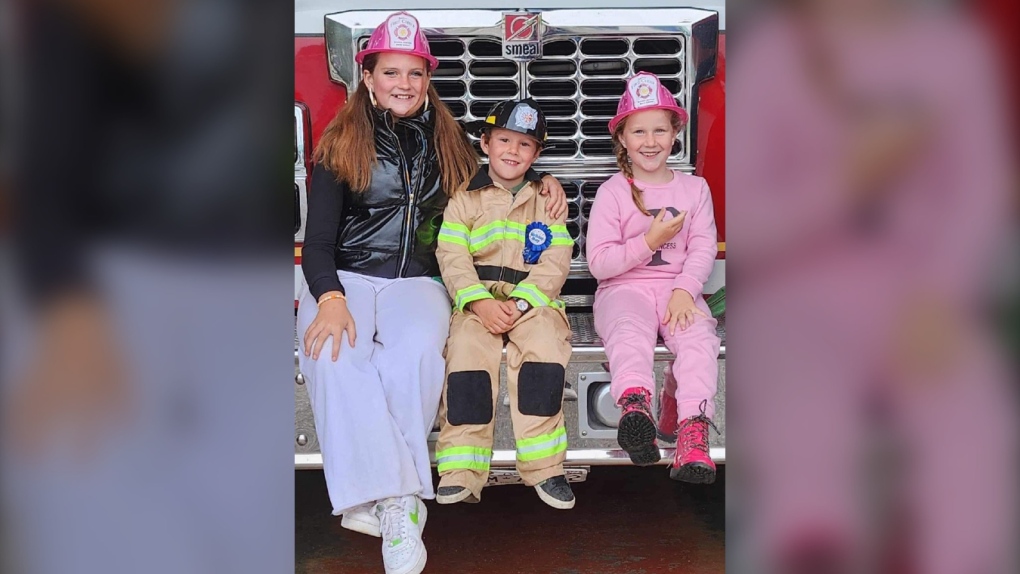Sudbury declares intimate partner, gender-based violence an epidemic
The City of Greater Sudbury is joining more than 60 other municipalities and regions in declaring intimate partner and gender-based violence an epidemic.
City council unanimously approved the motion at Tuesday night's meeting.
"Greater Sudbury has joined municipal governments across the province in recognizing survivors and advocating for change,” said Mayor Paul Lefebvre.
"We hope this declaration brings greater awareness and attention to all levels of government regarding the resources required to address this growing concern plaguing our communities."
The member's motion that was approved Nov. 7 calls on the provincial and federal governments to provide financial support for the agencies that provide meaningful resources and support to address the issue.
It said the government funding has not increased to meet the demand that increased substantially throughout the COVID-19 pandemic and continues to surge.
"Our community needs to speak up and say, 'We will not look away from this issue any longer,'" Lefebvre said in a statement.
"Horrific recent events in Sault Ste. Marie have added urgency to the need to act now. The troubling reality is that gender-based and intimate partner violence is experienced every day across the province."
The declaration comes during National Domestic Violence Awareness Month and Woman Abuse Prevention Month.
"It is absolutely unacceptable that one in three women will experience sexual violence in their lifetime, with women being three times more likely to experience stalking and three-and-a-half times more likely to be a victim of intimate partner violence than men," Michael Parsa, minister of children, community and social services, and Charmaine Williams, associate minister of women's social and economic opportunity said Tuesday in a joint statement.
"The risk of experiencing violence is higher for women who are Indigenous, racialized or newcomers, as well as women with disabilities."
- Download the CTV News app now and get local alerts on your device
- Get local breaking news and updates sent to your email inbox
The province is spending nearly $247 million to support victims of violence this year alone and almost $29 million in violence prevention initiatives.
"This month we encourage all Ontarians to show their support by participating in the Wrapped in Courage campaign, taking the White Ribbon pledge, joining events in their local community and helping those around them who may be experiencing violence," Parsa and Williams said.
"If you or someone you know is experiencing violence, you can find resources and supports, including helplines and shelters, at Ontario.ca/safe."
Nov. 25 is the United Nations International Day for the Elimination of Violence Against Women.
 Angie Sweeney was killed in Sault Ste. Marie by her former partner in September. (Supplied)
Angie Sweeney was killed in Sault Ste. Marie by her former partner in September. (Supplied)
 Abbie,12, Nate, 6, and Ally Hallaert, 7, were killed by their father Bobbie in a murder-suicide involving intimate partner violence in Sault Ste. Marie in October. (Supplied)
Abbie,12, Nate, 6, and Ally Hallaert, 7, were killed by their father Bobbie in a murder-suicide involving intimate partner violence in Sault Ste. Marie in October. (Supplied)
Resources for sexual assault survivors in Canada
If you or someone you know is struggling with sexual assault or trauma, the following resources are available to support people in crisis:
If you are in immediate danger or fear for your safety, you should call 911.
A full list of sexual assault centres in Canada that offer information, advocacy and counselling can be found at ReeseCommunity.com. Resources in your community can be found by entering your postal code.
Helplines, legal services and locations that offer sexual assault kits in Alberta, B.C., Saskatchewan, Manitoba, Quebec, Ontario and Nova Scotia can be found here.
- National Residential School Crisis Line: 1-866-925-4419
- Hope for Wellness Helpline (for Indigenous People) 1-855-242-3310
- 24-hour crisis line: 1-416-597-8808
- Canadian Human Trafficking Hotline: 1-833-900-1010
- Trans Lifeline: 1-877-330-6366
- Sexual misconduct support for current or former members of the Armed Forces: 1-844-750-1648
Read about your rights as a victim here.
CTVNews.ca Top Stories

Mark Carney reaches out to dozens of Liberal MPs ahead of potential leadership campaign
Mark Carney, the former Bank of Canada and Bank of England governor, is actively considering running in a potential Liberal party leadership race should Justin Trudeau resign, sources tell CTV News.
This Canadian couple has been to 195 countries. Here's what they learned on their eight-year journey
Masha and Robert Glanville, a Canadian couple, sold everything they owned to travel the world full-time. With over 195 countries visited, they focus on mindful, eco-friendly travel and giving back. Here’s what they had to say about their global journey.
WATCH Woman critically injured in explosive Ottawa crash caught on camera
Dashcam footage sent to CTV News shows a vehicle travelling at a high rate of speed in the wrong direction before striking and damaging a hydro pole.
Here’s the latest on this weekend's winter storms in Canada
From snow, to high winds, to extreme cold, much of Canada is under a severe weather alert this weekend. Here's what to expect in your region.
Peel police investigate possible connections between gunshot injury, luxury vehicle carjacking
Police are investigating possible connections between a gunshot injury and an attempted carjacking in Mississauga.
Trump appears with Italian Prime Minister Meloni at his Florida club
U.S. President-elect Donald Trump made an appearance Saturday with Italian Prime Minister Giorgia Meloni, who was visiting his Mar-a-Lago club.
'I gave them a call, they didn't pick up': Canadian furniture store appears to have gone out of business
Canadian furniture company Wazo Furniture, which has locations in Toronto and Montreal, appears to have gone out of business. CTV News Toronto has been hearing from customers who were shocked to find out after paying in advance for orders over the past few months.
Montreal arson squad investigating after commercial space fire bombed
The Montreal police’s (SPVM) arson squad is investigating after a vacant commercial space was fire bombed on Saturday night.
B.C. man ordered to pay damages for smashing Smart car window during road rage incident
A man who smashed the window of a woman’s Smart car during a road rage incident with a former co-worker has been ordered to pay $1,245 in damages by the B.C. Civil Resolution Tribunal.
































